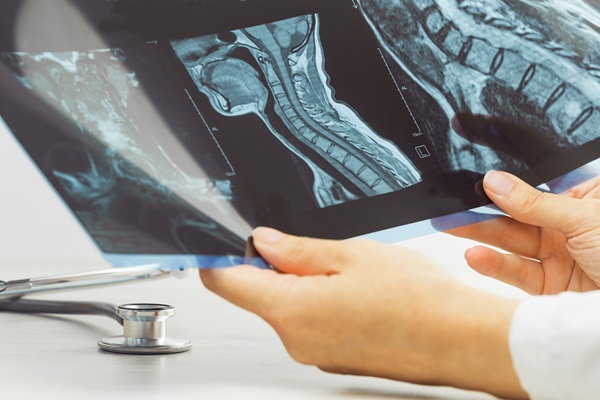How Spinal Cord Surgery Can Restore Function

Experiencing a spinal cord injury can alter your life, affecting your mobility and overall quality of life. When minimally invasive treatment methods do not work, spinal cord surgery can help restore function and relieve discomfort. An experienced neurosurgeon can discuss spinal cord surgery options based on your symptoms, medical history, and treatment goals.
Understanding spinal cord injuries
The spinal cord relays information between the brain and the rest of the body. The body loses essential functions when it sustains an injury because the nerves cannot communicate with the brain properly. Many spinal cord injuries are trauma-based, such as car accidents, falls, or sports injuries. Most of these can be divided into two types of spinal cord injury: complete or incomplete.
Complete spinal cord injury
This type of spinal cord injury causes permanent damage to the injured area, such as paraplegia or tetraplegia.
Incomplete spinal cord injury
An incomplete spinal cord injury refers to partial damage to the spinal cord. A patient's movement and sensation will depend on the injured area and the severity of the injury.
Levels of spinal cord injury
There are four sections of the spinal cord that can impact the level of spinal cord injury: cervical, thoracic, lumbar, and sacral. Each section of the spine protects different groups of nerves that control and communicate with the body. These levels of spinal cord injury include:
- Cervical spinal cord injuries: These injuries affect the head and neck region above the shoulders. They are the most severe level of spinal cord injury.
- Thoracic spinal cord injuries: Thoracic spinal cord injuries affect one's upper chest, mid-back, and abdominal muscles. Arm and hand function is typically unaffected by this level of spinal cord injury.
- Lumbar spinal cord injuries: These spinal cord injuries affect the hips and legs. People with these injuries may need a wheelchair or walk with braces when affected by this level of injury.
- Sacral spinal cord injuries: These injuries affect the hips, thighs, buttocks, and pelvic organs. Individuals should be able to walk with this level of spinal cord injury.
Types of spinal cord surgeries
Decompression
One common type of spinal cord surgery is decompression. This procedure aims to alleviate pressure on the spinal cord. A neurosurgeon creates space in the spine to relieve pressure on the spinal cord and nerves. This provides patients relief from symptoms such as chronic pain and numbness while restoring normal spinal cord function.
Spinal fusion
In cases where the patient's spinal cord is severed, the neurosurgeon may need to use more intricate techniques. Spinal fusion involves stabilizing the spine by fusing two or more vertebrae through an autograft (the patient's own bone) or an allograft (donor bone). The neurosurgeon may also use instrumentation, such as rods, screws, plates, or interbody cages, to support the bone graft. This surgical technique reduces the risk of further damage to the injured area and stabilizes the spine.
Nerve grafts
Another surgical approach is nerve grafts. This procedure replaces damaged nerve tissue with healthy donor nerves, promoting regeneration and reconnecting disrupted pathways. Nerve grafts can significantly improve the patient's quality of life and long-term function.
Schedule a consultation
When minimally invasive treatments have not worked, spinal cord surgery can give you relief after sustaining a spinal cord injury. While there is no universal cure for these injuries, spinal cord surgery can help you regain lost function and improve your quality of life. Call our office today to learn more or schedule a consultation.
Request an appointment here: https://www.brainandspineni.com or call Brain and Spine Neuroscience Institute at (813) 751-2029 for an appointment in our Palm Harbor office.
Check out what others are saying about our services on Yelp: Spinal Cord Surgery in Palm Harbor, FL.
Related Posts
A spine surgeon is a highly trained specialist who diagnoses and treats disorders of the spine, including both the bones and soft tissues that support the spinal cord and nerves. These surgeons employ advanced techniques to restore spinal stability, alleviate pain, and enhance mobility in patients with complex spine conditions. Understanding the range of issues…
Your baby needs hydrocephalus treatment if there is a buildup of CSF (cerebrospinal fluid) in the spinal column and brain. The telling sign is the enlargement of the heads of young kids and newborns. This excess fluid puts pressure on the brain tissue. This could lead to cognitive and general health issues if it does…
A brain anerusym is a serious condition that occurs in a blood vessel in the brain. It can lead to severe complications, including a rupture that causes brain hemorrhage. Understanding the symptoms, risks, and treatment options can help ensure patients take the necessary and immediate action to prevent the condition from worsening.A brain aneurysm forms…
Traumatic brain injury is one of the conditions that a neurosurgeon treats. The condition is simply a brain injury resulting from trauma – a blunt force to the head or an object breaking through the skull to reach the brain tissue. Depending on the severity of the brain damage, the symptoms can range from mild…
